EDSA Revolution Anniversary....
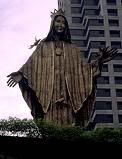 Today marks the 19th anniversary of the EDSA Revolution, the bloodless revolt resulting in the ouster of former President Ferdinand E. Marcos, who ruled with an iron fist for almost two decades. The EDSA Revolution, brought forth to our consciousness the concept of "People Power" as a peaceful means of effecting change in our government. Though one of the most significant events in our nation's history, the People Power Revolution was only the climax in a series of events which started 32 years ago, when President Marcos issued Proclamation No. 1081 on September 21, 1972, placing the entire country under Martial Law.
Today marks the 19th anniversary of the EDSA Revolution, the bloodless revolt resulting in the ouster of former President Ferdinand E. Marcos, who ruled with an iron fist for almost two decades. The EDSA Revolution, brought forth to our consciousness the concept of "People Power" as a peaceful means of effecting change in our government. Though one of the most significant events in our nation's history, the People Power Revolution was only the climax in a series of events which started 32 years ago, when President Marcos issued Proclamation No. 1081 on September 21, 1972, placing the entire country under Martial Law.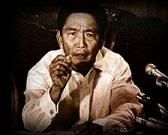 The suspension of the writ of habeas corpus, along with other fundamental rights, such as freedom of expression and the right to assembly, led to widespread abuses throughout the country, resulting in innumerable instances of wrongful imprisonment, denial of due process, conviction without trial, or worse, summary execution. The movement of all citizens was also curtailed through the imposition of a curfew. These were truly dark times indeed, which only ended when Martial Law was lifted nine years later on January 17, 1981 through Proclamation No. 2045. But by then, the seeds of dissension have not only been sown, but have taken up root in the nation's consciousness.
The suspension of the writ of habeas corpus, along with other fundamental rights, such as freedom of expression and the right to assembly, led to widespread abuses throughout the country, resulting in innumerable instances of wrongful imprisonment, denial of due process, conviction without trial, or worse, summary execution. The movement of all citizens was also curtailed through the imposition of a curfew. These were truly dark times indeed, which only ended when Martial Law was lifted nine years later on January 17, 1981 through Proclamation No. 2045. But by then, the seeds of dissension have not only been sown, but have taken up root in the nation's consciousness.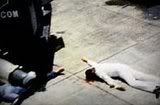 Two years later, former Senator Benigno "Ninoy" Aquino, Jr., was assassinated on the tarmac of the Manila International Airport as he was returning from exile from the United States. This triggered an outpouring of sadness and sympathy from the people, leading to the most attended funeral in the country's history and the elevation of Ninoy Aquino to the status of martyr. Ninoy Aquino finally gave a face to the nation's growing unrest. A botched investigation, along with speculation of a government conspiracy and cover up only exacerbated the situation. Wave after wave of political protests ensued, finally prompting President Marcos to declare snap elections to be held on February 1986 in an attempt to obtain a fresh mandate. Stepping up to the plate to meet the challenge as opposition candidate was Ninoy Aquino's widow, Corazon Aquino.
Two years later, former Senator Benigno "Ninoy" Aquino, Jr., was assassinated on the tarmac of the Manila International Airport as he was returning from exile from the United States. This triggered an outpouring of sadness and sympathy from the people, leading to the most attended funeral in the country's history and the elevation of Ninoy Aquino to the status of martyr. Ninoy Aquino finally gave a face to the nation's growing unrest. A botched investigation, along with speculation of a government conspiracy and cover up only exacerbated the situation. Wave after wave of political protests ensued, finally prompting President Marcos to declare snap elections to be held on February 1986 in an attempt to obtain a fresh mandate. Stepping up to the plate to meet the challenge as opposition candidate was Ninoy Aquino's widow, Corazon Aquino.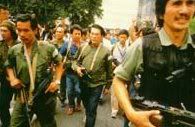 After a tumultuous campaign period and election proper, accusations of mass cheating, and both sides claiming victory, a small faction of government forces, led by then Minister of Defense Juan Ponce Enrile and then Vice Chief-of-Staff Lt. Gen. Fidel V. Ramos broke away from Marcos administration and took up defensive positions in Camp Aguinaldo. Archbishop of Manila Jaime Cardinal Sin gave his support to the rebellion, and issues over radio a plea for support for the rebel group. The cry for revolution became too loud to ignore, and many ordinary citizens heeded the call. Despite the threat of attack from government forces, wave after wave of civilians surrounded the rebel positions, forming defensive barriers and making it impossible for government troops to attack without endangering them. On February 25, nineteen years ago to the day, Corazon Aquino was sworn in as President at Greenhills, San Juan. An hour later, Ferdinand Marcos also took his oath as President at Malacañang. Before the day's end, Ferdinand Marcos and his family, along with some their supporters would be out of the country, on their way to Guam, and eventually, to Hawaii. The revolution was over.
After a tumultuous campaign period and election proper, accusations of mass cheating, and both sides claiming victory, a small faction of government forces, led by then Minister of Defense Juan Ponce Enrile and then Vice Chief-of-Staff Lt. Gen. Fidel V. Ramos broke away from Marcos administration and took up defensive positions in Camp Aguinaldo. Archbishop of Manila Jaime Cardinal Sin gave his support to the rebellion, and issues over radio a plea for support for the rebel group. The cry for revolution became too loud to ignore, and many ordinary citizens heeded the call. Despite the threat of attack from government forces, wave after wave of civilians surrounded the rebel positions, forming defensive barriers and making it impossible for government troops to attack without endangering them. On February 25, nineteen years ago to the day, Corazon Aquino was sworn in as President at Greenhills, San Juan. An hour later, Ferdinand Marcos also took his oath as President at Malacañang. Before the day's end, Ferdinand Marcos and his family, along with some their supporters would be out of the country, on their way to Guam, and eventually, to Hawaii. The revolution was over.
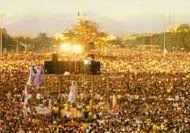
My Two Cents
The EDSA Revolution was a significant turning point in our nation's history. We've proven that a change in our government's leadership can be made without violence, without bloodshed. Unfortunately, that may also be our undoing. Since 1986 we have had two (arguably) more EDSA revolutions, with one ending in failure.
The second EDSA Revolution, aptly known as EDSA II took place on January 2001, and concluded with the ouster of then President Joseph E. Estrada, and the assumption into office of then Vice President Gloria Macapagal Arroyo after a controversial impeachment trial over allegations of corruption which was never concluded.
A few months later, in April and May, EDSA Tres took place. The third EDSA Revolution, if it can be called that, was a poor excuse for a revolt supposedly supported by the masses, as it only gained support from the lower class and a small number of politicians loyal to former President Joseph Estrada. The keys to the success of the first two revolutions, namely, support from the military, support from the church, and support from the middle class were conspicuously absent. In the end, EDSA Tres was more characteristic of a mob out of control than any peaceful revolution I've heard of. It ended abysmally, in failure.
The danger with this revolutionary mentality is that we have instituted revolution as means, in fact a popular means, of changing the status quo. As a democracy, we are supposed to be a government of laws, and not a government of men. And yet, our laws have been bent over backwards to accommodate the concept of people power, the concept of a peaceful and popular uprising. Despite appearances to the contrary, leadership is much more than a popularity contest. And yet, we have extolled trial by publicity, and significantly depended on public opinion to determine not only who leads us, but national policy as well on a number of occassions. Whatever happened to due process of law? I for one, am NOT a supporter of President Joseph Estrada, but everyone deserves due process. And I mean everyone. To find himself out of office due to a controversial justification and interpretation by the Supreme Court of the law and the circumstances surrounding his ouster is...well...at the very least disconcerting. Laws are supposed to protect society. Extremely wide latitudes in its interpretation can be dangerous. And let us not forget, the impeachment trial was never concluded.
The Supreme Court has always had my respect. In fact, it is the most respectable, in my humble opinion at least, of the three branches of government. But perhaps, perhaps, it may need to be a bit more circumspect. Then again, history will be the best judge of all, as we were indeed on the brink of a constitutional crisis at that time.
A good leader must always be willing to do the right thing, even if it is unpopular. Leaders are supposed to make right decisions, not popular ones. If we always get rid of unpopular leaders at the drop of a hat, well, that can only be described as crab mentality at it's worst. And look at our headlines. Protest rallies are the norm. Filing of cases of impeachment are the norm. Are all of them sincere efforts to create worthwhile change? What do you think?
The bottom line is, our leaders are supposed to be chosen by the people at large. Not by a certain percentage of the population who congregates in a specific location, not by the church, not by the military, and not by any economic class. Yet this has happened. In fact, it has happened more than once. There are definitely situations which warrant revolution. We should not be so quick to resort to it if there are other lawful means.
The revolution that took place on February 21-25, 1986 was a true revolution in every spirit of the word. EDSA II toes the line somewhat, yet is generally accepted. EDSA Tres crosses it completely, hence its failure. Revolution is a very dangerous and potent weapon. We as a society should be more responsible in wielding it.
We should also stop milking the past EDSA revolutions for all its political worth. A lot of politicians still take the revolutions as a license to make bad decisions. They keep bringing it up in speeches, and it can be sickening at times. Remember the past. But let us stop dwelling on it. The world has changed. Situations have changed. We have to look to the future.
That's just my two cents worth.
Links:
The 1986 EDSA Revolution Website
EDSA II: The Spirit of EDSA Lives On
EDSA Tres: Angry for the Wrong Reason
Some photos from:
An Online Guide About the Philippine History
Center for Southeast Asian Studies Picture Archive Vol 04
Comments